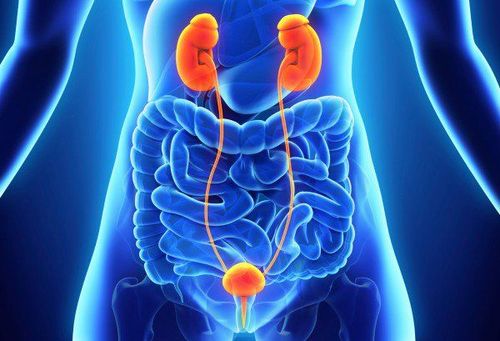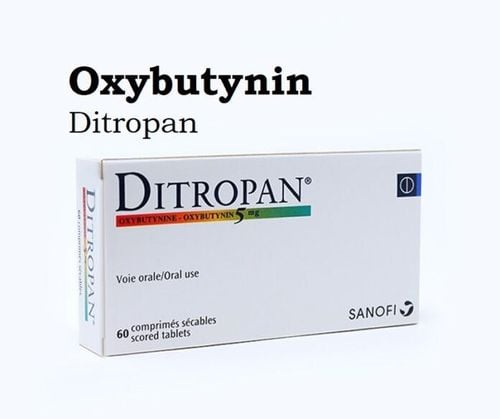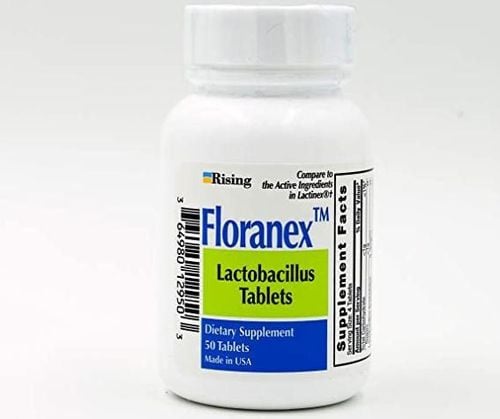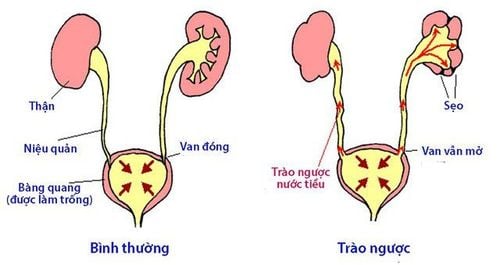This is an automatically translated article.
Vesicoureteral reflux is an abnormal flow of urine from the bladder to the ureter. The disease needs to be treated to limit the risk of dangerous complications. What causes this condition and what are the symptoms?1. What is vesicoureteral reflux?
Normally, urine flows down the urinary tract, from the kidneys through the ureters near the bladder. Vesicoureteral reflux is a condition in which urine flows backward from the bladder to one or two ureters, and possibly even up to the kidneys. This disease increases the risk of urinary tract infections, which in the long run can cause damage to the kidneys.Vesicoureteral reflux is common in infants, young children, sometimes adults also experience this condition.

Tình trạng trào ngược bàng quang niệu quản là hiện tượng nước tiểu chảy ngược từ bàng quang đến một hoặc hai niệu quản, thậm chí có thể ngược lên đến thận
2. Causes of vesicoureteral reflux
Due to congenital or pathological causes leading to vesicoureteral reflux. Specific:Congenital: Due to the compartmental intra-wall ureter, also known as myasthenia of the urinary triangle, malformation of the ureter, orifice dilated ureter, double ureter, ectopic ureter, ureteral reflux due to aneurysm of the ureter on the opposite side, bladder malformation, paraureteral bladder diverticulum, bladder paralysis... Pathology: Pathologies Urinary tract infections, neurogenic bladder, lower urinary tract obstruction (posterior urethral valve, urethral stricture) are also causes of vesicoureteral reflux.
3. Symptoms of vesicoureteral reflux
Vesicoureteral reflux does not always have obvious symptoms. When we have the following signs, we should immediately think of vesicoureteral reflux:Urinating a lot, urinating Urgently There is a burning sensation when urinating Frequent urination but a small amount of urine each time Occurrence Blood in the urine, cloudy urine, strong odor Symptoms of fever There is pain in the side. Abdominal Do not want to urinate, hold urine to avoid burning when urinating. In children with vesicoureteral reflux, there will be unexplained fever, diarrhea, loss of appetite, irritability, bedwetting, constipation ...

Người bệnh thường không muốn đi tiểu, nhịn tiểu để tránh tình trạng nóng rát khi tiểu
4. Diagnosis of vesicoureteral reflux
To diagnose vesicoureteral reflux, the patient should have a full range of clinical examinations and paraclinical tests, including:Kidney and bladder ultrasound X-ray of bladder and urethra when urinating X-ray radioactive urethra
5. Treatment of vesicoureteral reflux
The treatment methods for vesicoureteral reflux are prescribed by a specialist based on the actual condition of each patient. As with children, primary vesicoureteral reflux is mild, which may resolve spontaneously with age and with further follow-up.When reflux is severe, the patient has treatment methods including:
5.1 Medical treatment To prevent retrograde urinary tract infection and kidney scarring. Patients can be prescribed prophylactic antibiotics such as Bactrim with 1/2 - 1/3 of the normal dose (taken in the evening), lasting until the reflux on X-ray has stopped for at least 6 months. For children will also be indicated for medical treatment when the condition of vesicoureteral reflux.
5.2 Surgical treatment When medical treatment does not work, the doctor will prescribe surgery to correct the defect in the valve between the bladder and the affected ureter. After surgery, the valves can close tightly, preventing urine from flowing back up. Some types of surgery include:
Open surgery: The patient will have general anesthesia, a lower abdomen to correct abnormalities in the bladder and ureteral valves. After surgery, the patient needs to be monitored for the next condition. Laparoscopic surgery with robot support: Patients will have more aesthetic incisions, but the success rate is sometimes not as high as open surgery. Laparoscopic surgery: The doctor will use a small tube with a light attached through the urethra, to the bladder to look inside this organ. A filler is injected around the valve openings to help them open and close properly. This method is less invasive, less risky, but not very effective.

Đối với trẻ em cũng sẽ được chỉ định điều trị nội khoa khi gặp tình trạng trào ngược bàng quang niệu quản
If vesicoureteral reflux is not treated promptly and effectively, it will cause serious complications such as kidney scarring. hypertension, renal failure.
At Vinmec International General Hospital, customers are effectively examined and treated for vesicoureteral reflux by a team of highly qualified specialists and doctors. With the support of a system of modern medical equipment, the condition of vesicoureteral reflux will stop after treatment. Contact immediately to receive treatment consultation at Vinmec.
Please dial HOTLINE for more information or register for an appointment HERE. Download MyVinmec app to make appointments faster and to manage your bookings easily.
SEE ALSOWhat is a urinary tract infection and is it dangerous? Warning signs of UTIs Causes and signs of UTIs in children













